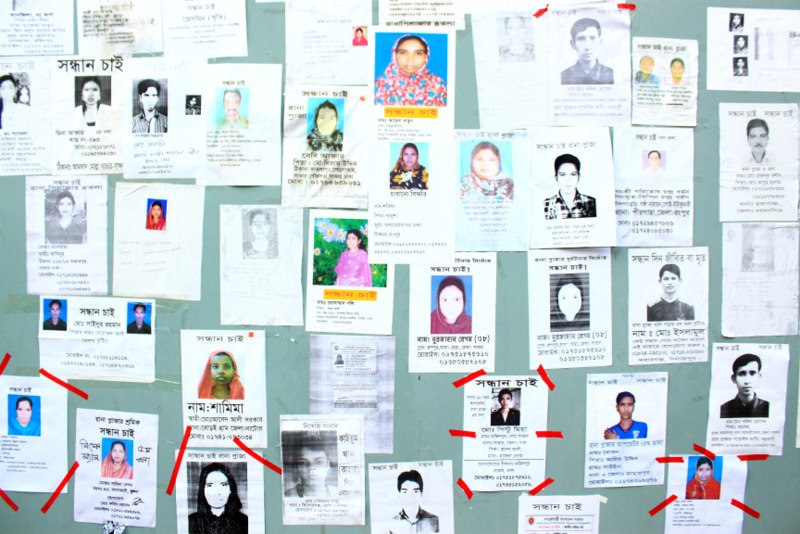
It has been more than two weeks since the collapse of Rana Plaza in Dhaka, Bangladesh. The latest numbers say over 1000 people have died and the death toll is still rising. Over 3,000 workers were trapped under the rubble. Some were rescued alive, an effort that still continues. One woman clung on to her life for four days. On the fourth day, a fire broke out, and she died in the blaze.
Eighty percent of Bangladesh’s garment factory workers are women. These women are the lowest paid and hardest working members of the country’s labor force. As a child in Dhaka, I watched these garment workers from my bedroom window as I got ready for school. They filled the streets as they rushed to work. They returned after dinner.
These women have no rights. They have no benefits or privileges. They are often the bread-winners of their families, and their livelihood is essential for the survival of their families, especially of their children. Many of their children will grow up to face the same struggles as their mothers. This is not a cultural thing. It’s a massive discrepancy in a class system where the rich only ever get richer, and the poor only poorer. How and why does this happen?
Bangladesh is home to one of the world’s largest garment industries. American shoppers see “Made in Bangladesh” tags more than “Made in USA” labels. The average garment factory worker in Bangladesh makes $38 a month, working 6 days a week, for, on average, 10 hours a day. That wage is $0.63/hour. Compare that to minimum wage in America, which is $7.25 an hour. An American worker makes in five hours what a Bangladeshi one makes in a week.
Well-known retailers like Walmart, Mango, Primark, H&M, Gap, Zara and JC Penney (to name just a few) have the brunt of their garments manufactured in Bangladesh. Why? Because:
- It’s cheaper.
- It’s cheaper.
- Profit.
- Profit.
- Profit.
Are international retailers taking advantage of the gross class system that resides in Bangladesh? Yes. Are international retailers exploiting Bangladeshi garment workers? Yes, absolutely. Are they compensating workers for their hard work? Absolutely not. There is no doubt about it.
Why have the owners of the factory and of the building been arrested? Not for the sake of justice, but because news of the collapse of this factory has spread to the West, home of the international retailers. The Bangladeshi government does not want to bring justice to the forefront — it wants to ensure that international retailers don’t pull out of Bangladesh and seek grossly cheap labor elsewhere.
Does the government care about the poor, the workers, the ones who lost their lives? No, because if the government did care, there would be a legal and implemented minimum wage system. Laborers would have the liberty to unionize. There would be health benefits and maternity leaves and nurseries. Instead, the owners arrested will slip through the cracks, just as the owners did in the November 2012 factory fire in which thousands of workers were locked in the building.
In 2007 Bangladesh went into a State of Emergency and the Bangladeshi Army took over the government. Their so-called objective was to eradicate corruption rampant throughout the government. Politicians and those with political ties who couldn’t flee to their Virginia mansions and massive London apartments in time were arrested. After a while, these politicians began to slowly reemerge. It was important to them to maintain the standard of the rich getting richer.
Those workers who could not be saved from the factory building will eventually disintegrate. They will not be remembered. Their families will receive nothing as a compensation.
Though the owners are egregiously at fault, international retailers are just as at fault for their abuse of cheap labor and for never ensuring that the Bangladeshi government abide by a set standard of employment and labor laws. It is not possible to undo the damage caused, nor is it possible to remedy so corrupt a system over the course of weeks, months or even a year.
It is not impossible either. To revolutionize a dysfunctional country and change a global labor system is not easy. But supporting workers who are organizing in Bangladesh will help. So will putting pressure on governments that let retailers get away with dangerous working conditions and repressive labor practices.
Tasnim Ahmed is a 23-year-old writer and designer living in Washington, D.C. Her website is blog.tvgirlfriend.com. An earlier version of this essay was published on her website.












